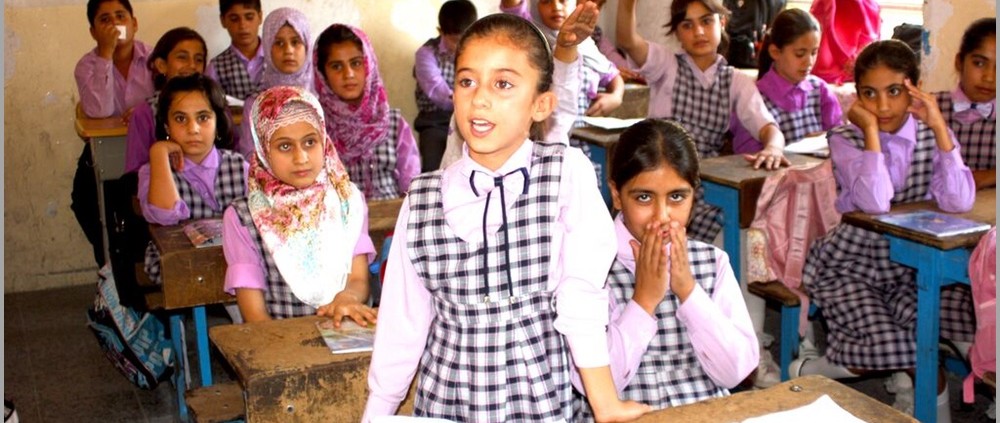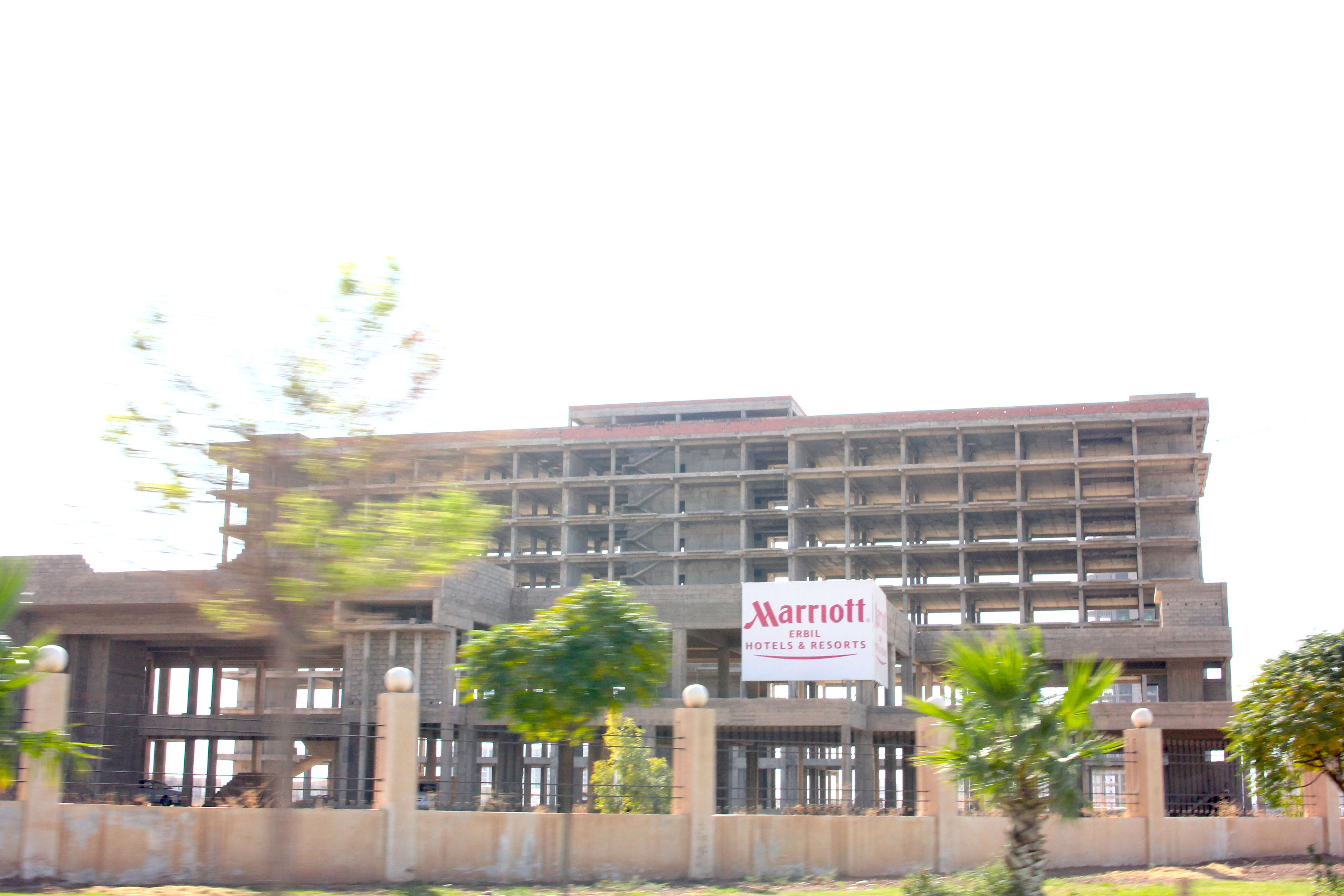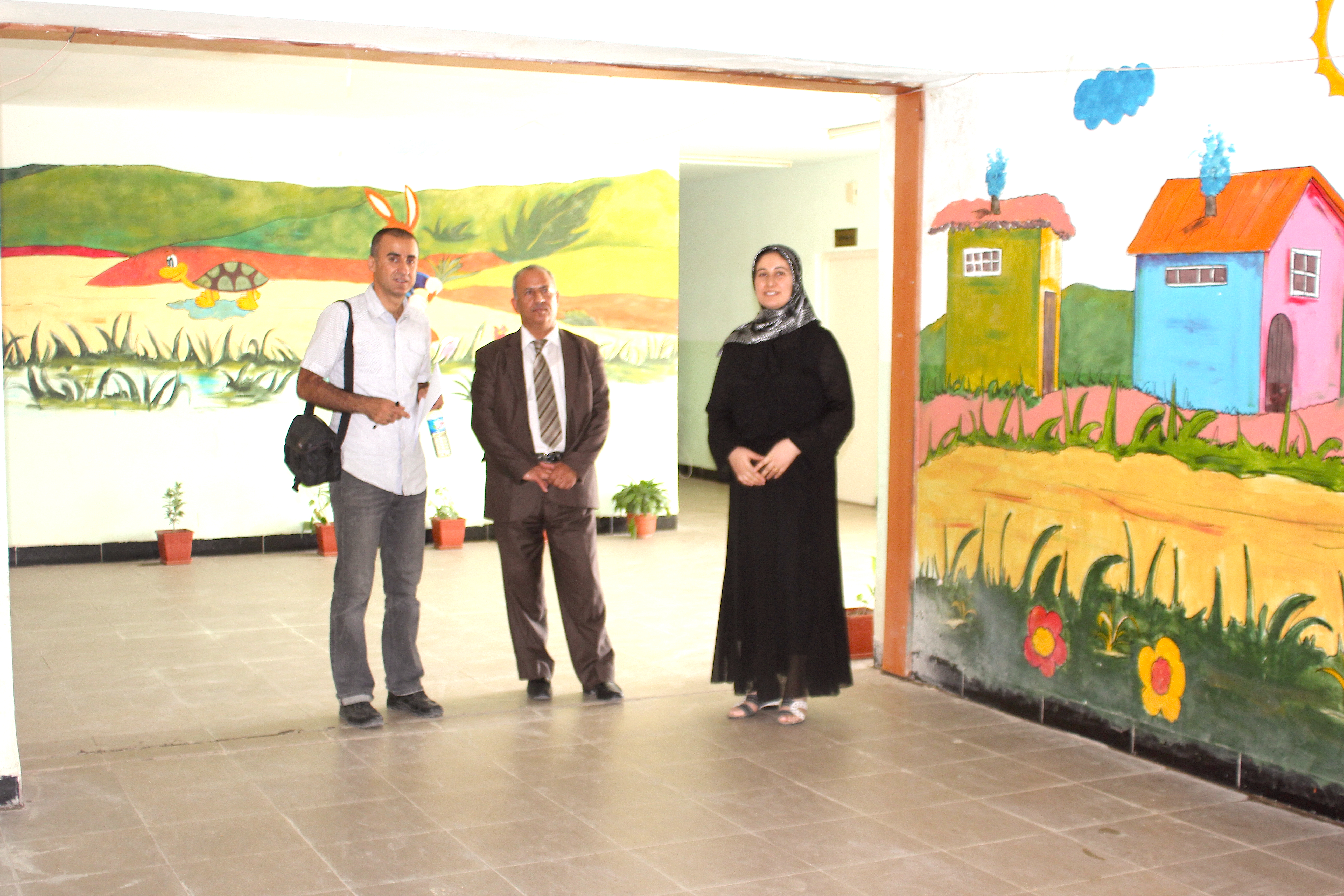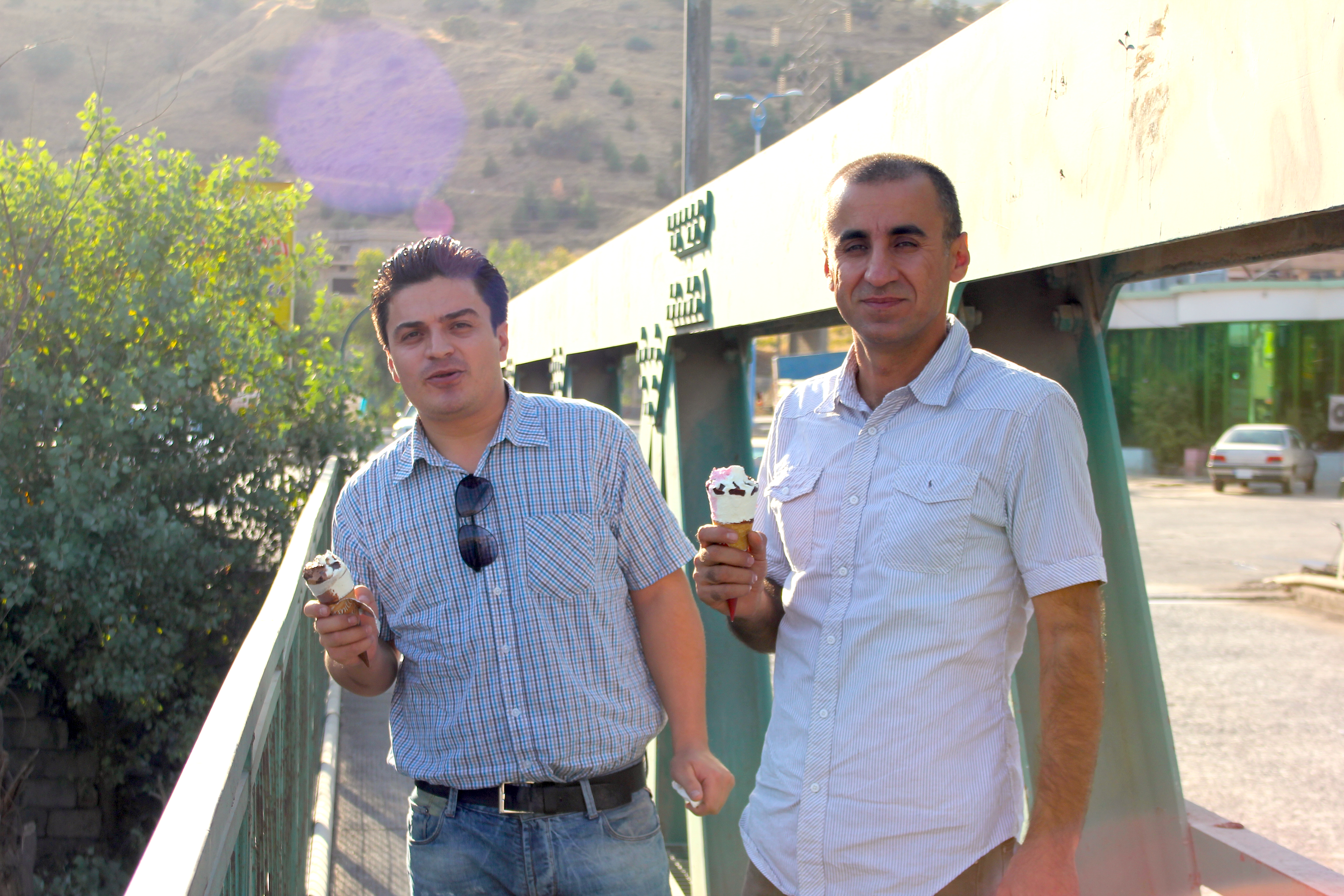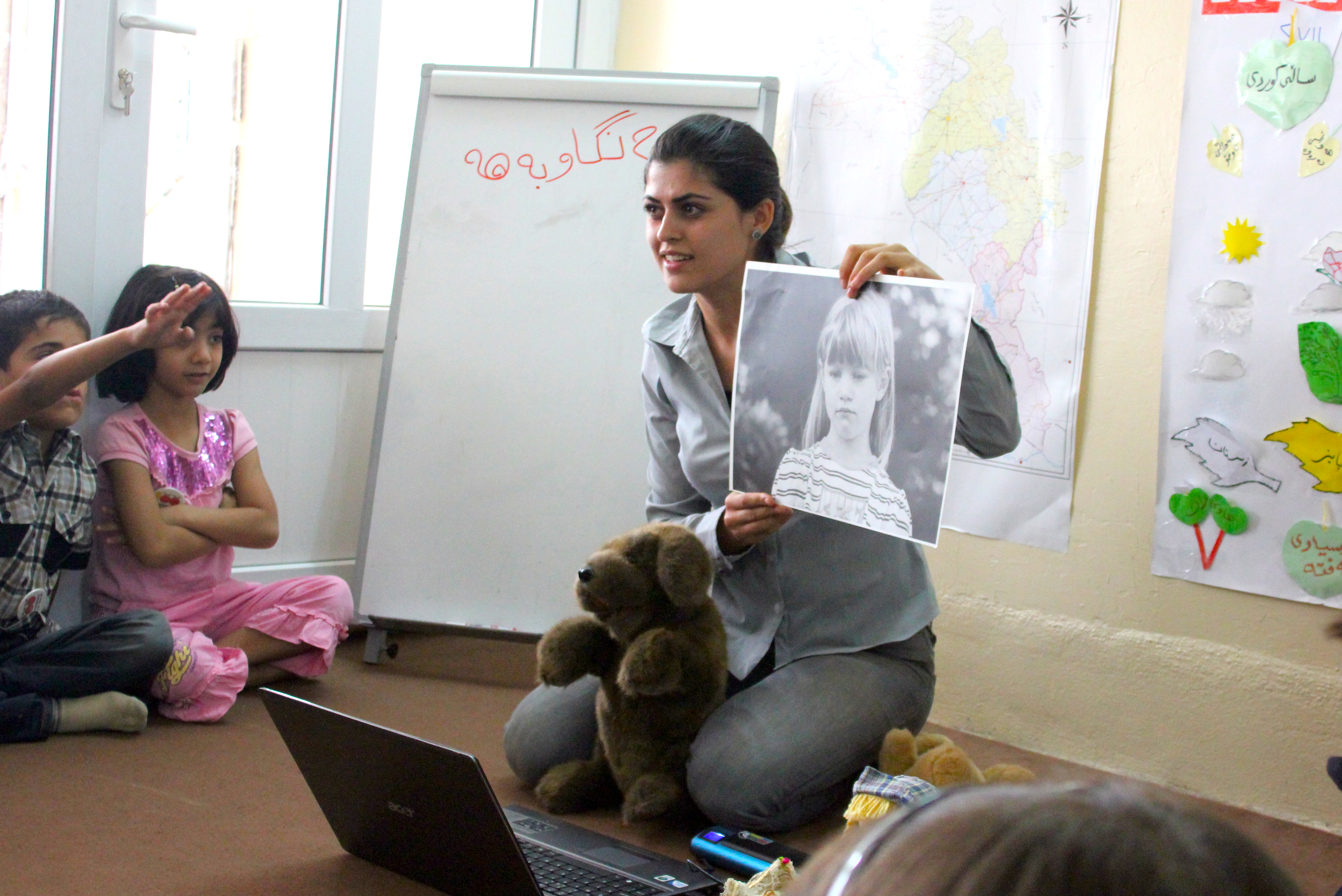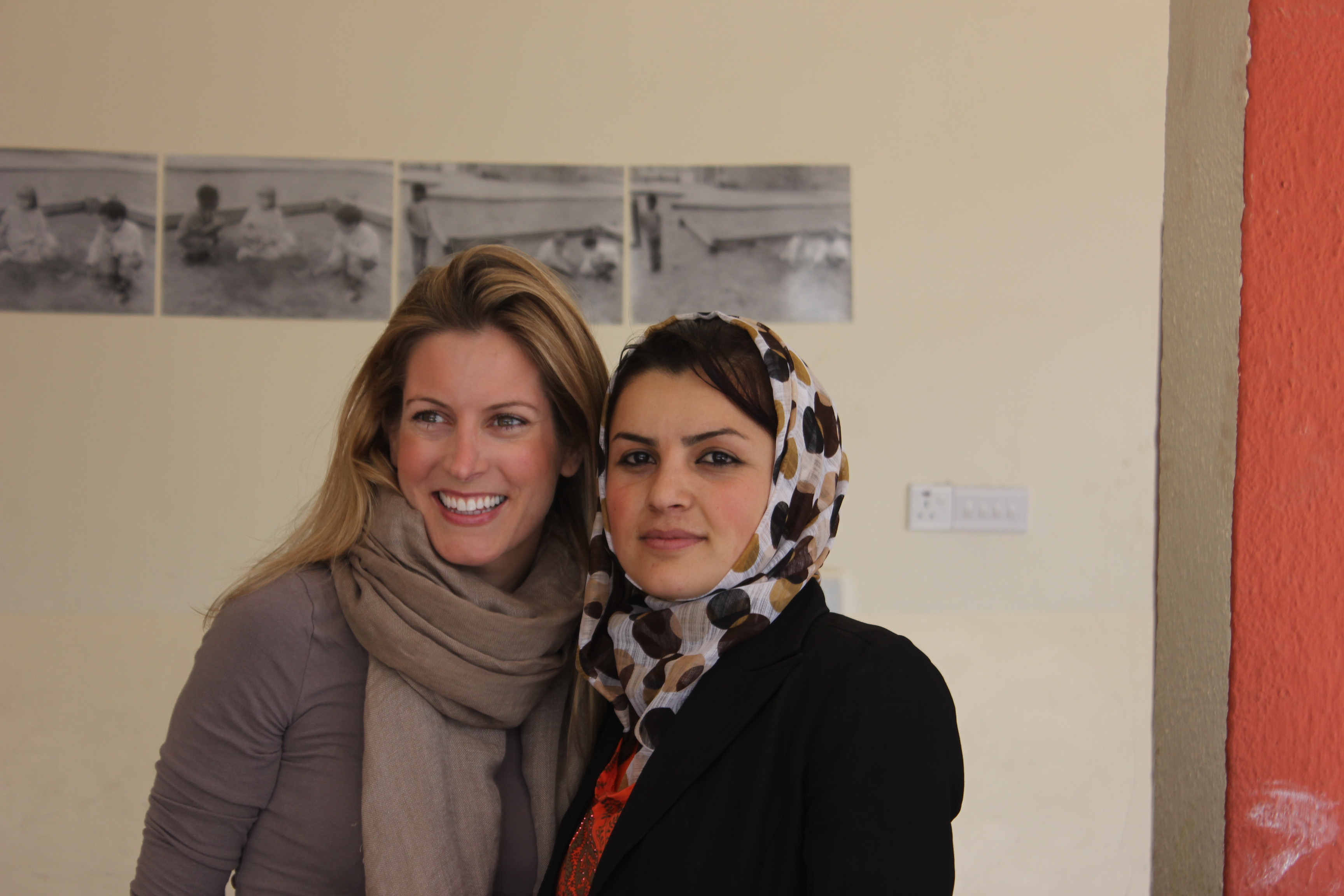Defining Peace – Northern Iraq
When the US invaded Iraq, 60% of Iraq’s population were under 18. Today, Youth Unemployment is 57%, 65% of youths don’t know how to use a computer, and 70% of Baghdad’s children have been diagnosed with severe trauma. Enrolment in Secondary Education is only 21%. Armed groups and insurgencies are actively recruiting children to fight and carry out suicide attacks. Meanwhile, in the last three years, almost 100 billion dollars of foreign investment have entered Iraq, funding advancements in the oil and gas industry, telecommunications, real estate and hospitality. In the plethora of public and media debate about Iraq, I have continuously asked myself who has yet reflected on the promise of an Iraqi future through the minds of the millions of children who will ultimately own it? How do they view the possibilities of their future when on the whole their country has grown ever more unstable during their formative years? Will they receive the educational foundation for independent thought and critical discourse required of a democratic society, or the individual empowerment necessary for a prosperous free market economy? I believe there is a significant gap between the worldview of the enormous wave of children growing up in Iraq and the opportunity available to their country as articulated by foreign investors and policy makers, and that gap can only be filled by education. I decided to go and find out…
And so I went to Iraq, this first trip focusing on the Northern part of the country, the Kurdish region of Iraq. Kurdistan was safer that I had expected. I returned unshaken, but very moved. The Kurds suffered their worst violence in the 1980’s and 90’s with the gross humanitarian abuses by Saddam Hussein’s Ba’athist regime and the guerrilla war of the Separatist Kurdistan Workers Party (PKK) with Turkey. Vast areas and villages of the Kurdish countryside were destroyed and thousands of civilians were killed during anti-insurgent campaigns that included ground offensives, aerial bombing, systematic destruction of settlements, mass deportation, firing squads, and chemical warfare. Amnesty International collected the names of more than 17,000 people who had ”disappeared” during 1988 alone. Since the beginning of the new millennium, and with the removal of the dictatorship, the Kurds are finally experiencing stability and many Kurds who fled their homeland have come back to resettle, bringing with them internationally acquired skills and a passion to rebuild their country.
It is a stunningly beautiful region that everywhere reminds you of its impressive history as the cradle of civilization, Mesopotamia. It is now faced with tremendous opportunity to blossom once again, with oil production nearing 3 million barrels per day and direct foreign investment flooding into the country. But confirmed to me in the vast amounts of conversations I enjoyed with a variety of stakeholders is that there is more than meets the eye. The opportunity carries difficult challenges that need to be addressed urgently, taking into account geopolitical, ethnic, social and economic agendas. Perhaps the most critical but not currently obvious, includes making sure that the young, who comprise the majority of the population, are able to grasp and sustain this economic development, as well as efforts to stabilize the sectarian violence that is worsening in parts of the country and undermining development. See select reference articles listed on www.integratehands.org/articles.htm .
On October 10th I landed in Erbil, where I stayed for the first half of the trip. A city bursting with development evident in construction everywhere you look, boasting work in progress steel structures wrapped in signs marketing what is taking shape, from big hotels and office buildings to shopping malls and residential apartments. There is even a mall that has an indoor ice-skating rink. The locals I spoke to proudly refer to their city as “the next Dubai.” Yet, while talking to a local resident, who is a successful young executive in a foreign oil company, he was sharing his difficulties buying an apartment in one of these buildings under construction. The developers had raised the price three times, and still the building is not even completed. I couldn’t help but think, if he is one of the lucky 43% of young Iraqis who has a job and on top of that is well paid, and he can’t afford to buy an apartment, then who will?
I met a remarkable group of Iraqi businessmen and foreign investors with whom I am in continuing dialogue about next steps to raise awareness and pooling resources to advance the capability of Iraq’s youth. I also met the inspiring CEO of a local media production company that has offered to film and edit the documentary I aim to produce to support these efforts. I can’t wait to share these developments in the coming weeks.
I then spent two days visiting schools in the countryside. Although only a fragment of the children are actually in school, the ones that are enrolled are still too many for the few state schools to handle. Some schools not only have to put 50 students in each classroom, but they also accommodate for the masses of children by teaching in shifts, many even dividing the day into four shifts, so each child can only attend 2 hours of school a day. The school buildings are old and dilapidated, and many of them were originally built for other purposes such as medical facilities, so the rooms that are now used as classrooms are very small. Few of them have electricity so the children learn to read and write in a classroom barely lit up by the few rays of sunlight that the tiny windows let through. Only my camera’s flash was strong enough to bring some light for a clear picture. The children loved to be photographed and to see their pictures on the screen of my camera.
I was exceptionally hosted by a local NGO called Komak, which through its own independent primary schools are doing truly extraordinary work to improve education for the lucky few children who they can accommodate. Komak was founded by Kurds who fled Iraq in the 80’s to Sweden and Norway. They discovered as they put their children in school that the Scandinavian curricula offered a comprehensive education at the highest international standards not dominated by religious or political views. They decided to adapt this system to a Kurdish version and build as many schools as they could to deliver it in their home country, with the vision of creating a better future for its children by encouraging development of their creative and intellectual capacity, and in the long term promote the development of democracy and advocate for the implementation of civil and human rights. For more information about Komak see http://www.komak.nu/Kurdi/Rupel/Diwan.htm (click on “English” at the top left corner).
Karwan Aref, Komak’s leader of projects in Kurdistan and my role model of a modern day hero, took me under his wing and gave me a most comprehensive tour of the region’s school system and the countryside with tireless effort and rare hospitality.
During the hours of travel alongside the country roads I was in awe of the beautiful landscape. Miles of rolling hills illuminated by golden grass and striped agriculture fields, graced by cattle and featuring an occasional tree adding a splash of green to the earthy colours. It didn’t occur to me until Karwan pointed out the evidence of the region’s tragic history along the roads. He told me that these rolling hills used to be so lush with trees that most of them were covered in forest, but under the violent oppression of the Kurds by the Ba’athist regime they were bombed to the extent that part of the nature was permanently destroyed. Tucked between the soft shapes of these beautiful hills were occasional man-made hills that signalled mass graves, surrounded by gravestones in the shadow of the few trees that remained. Karwan spoke with an altered tone of voice indicating a persevering anger about the injustice caused to his people and the remnants of fear and aggression that still take expression in the daily lives of the Kurds, in the form of domestic abuse and aggressive responses to problems. “For a society that has suffered so much threat, violence and destruction, aggression is a default way of handling problems. The deeply rooted feelings of insecurity makes people want to put others down to lift themselves up.”
Touring the villages of Koye and Ranya, we were greeted at every school by its Headmaster and its designated government representatives. All of them were eager to make improvements in their educational offer and the children’s environment but seemed to be limited only by not knowing how, but looking to Komak for support as and when it would become available to them.
Slowly but persistently growing at the rate of their access to resources, Komak’s dedicated founders and passionate teachers are not only giving their school children an internationally recognized quality education, but their curriculum also includes a weekly program fostering empathy and tolerance, called “Hengaw Be Hengaw”. This is the Kurdish name of an educational curriculum designed to address children’s development of social and emotional skills in preschool, primary and secondary schools. This program has been translated from the American curriculum Second Step, which was developed in 1992 by the non-profit organization Committee for Children (CFC) in Seattle, USA. The program equips children with skills to tolerate difference and constructively resolve conflict. They learn to be aware of their own feelings and the feelings of others. They learn how to read the signs of another person’s emotions, and articulate them in words to that they can express their empathy verbally. When they are in contact with their emotions, they are less aggressive, and they learn ways to cope with frustration through discussion and collaboration. In the context of Iraq, and the plethora of post-conflict societies across the world, this program has the capacity to transform this generation that is so large it could be the tipping point in breaking patterns of violence in a society tainted by decades of conflict.
Thanks to Komak’s inclusion of state school teachers in their training of the Second Step program, several of the state schools can now teach Second Step as well. The difference this program made even in the state schools with their limited resources was highly evident and almost moved me to tears. With eagerness and excitement, one after the other as their teachers responded to their raised little hands, these kids got up and shared what they had learned from Second Step: “I have learned to accept and respect other people who may be different from me,” “ I have learned to listen actively and read how another person feels and to make them feel better,” “When I get angry, I take three deep breaths and count down from five to zero and then I tell the other person how I feel,” “I have learned to solve problems between me and other people,” and “When someone is aggressive I put my hands behind my back to show them that I’m not going to fight back.” I was blown away by their wisdom, wishing that I had possessed the insight that they have when I was their age, and ignited with a sense of urgency to give every child in Iraq and beyond access to this simple but so powerful program. I asked them to share examples of how they were applying what they had learned in their daily lives and their stories told of enormous shifts they had made in relationships between them and other children and with and between family members. It is hard to imagine that these kids with what they have learned would ever resort to violence in a conflict situation. Or see any situation as conflict at all.
I asked Karwan what drove him to dedicate his life to Komak. “If we can build more schools, 80% of the problems in society will disappear. If we can build an academy to train teachers to deliver this curriculum, we can meet the needs of education and healing for all the kids in the country. If we can teach professional skills, we can build our economy in a sustainable way. The problem today is that there are no national standards, no established school calendar, unequal distribution of children in the schools and poorly trained teachers.”
After a long day of school visits, Karwan brought me and his dedicated Komak disciples along to dinner at the house of a wonderful Kurdish family who hosted us with a lavish feast of traditional food and freshly picked vegetables and herbs from their garden.
Barely mindful of being the only foreigner, the one thing that struck me during dinner, was that I was the only woman in the dining room with the father of the house, his five sons, and Karwan with his son and friends. Our hostess and her four daughters were dining in a separate room and came to join us for post-dinner conversation over tea and fresh grapes.
Conversation seemed effortless, thanks to Karwan and his son’s alert translation from Kurdish to Norwegian, to which I responded in Swedish and English. Having grown up on a farm with horses and agriculture and fishing and hunting, I was able to have an exciting dialogue with our host and friends about their farming background, passion for horseback riding, the white fish in the local river that grow to over 100 kilos and the bursting flavor of their homegrown tomatoes. We spoke and laughed intensely for hours, and when we left our lovely host sent me off with a boquet of aromatic herbs to put next to my pillow for a good night’s sleep.
Back at Komak’s school in Ranya where I was to spend the next two nights, the giggles were still fully alive as Karwan and his son Sakan, and Komak crewmembers were preparing various tasks for the following schoolday while serving delicious pomegranate seeds from the fruit orchard of the schoolyard. After a long conversation with Karwan about Komak’s expansion plans, I went to bed on my mattress in the headmaster’s office, which at the point of exhaustion I had reached felt like a bed of feathers.
The next day awaited with even more intensity. Komak’s lovely teachers showed up to start the day over a delicious breakfast, and before I knew it the schoolbus arrived and the yard was filed with enthusiastic schoolkids, bursting with energy and affectionately greeting the teachers who were on shift to watch the schoolyard before classes began. I was welcomed to sit in on several lessons, including English taught to first and second grade students. I also immensely enjoyed a session of the Second Step program with the first graders.
Komak’s criteria for enrolment of a student are clear and simple. They must not suffer any physical punishment or abuse at home, and the parents have to collaborate with the school by attending regular meetings and meet the requirements for their children to progress. Other than that, every child has a chance to an education that undoubtedly redirects their life towards a future where they can actualise their own unique potential. I asked Karwan what he thinks Kurdish life would have been like if these programs had been available to his generation. He said with conviction, “Revenge would not be so important to people.” And upon brief reflection on what he had just said, he continued “When I think about what I’ve grown up with, I get angry. Although we now are able to move forward, it’s easy to build a house or buy a car, but it’s hard to forget what happened to us just a few decades ago. We have to remind ourselves to think constructively, and get out of old patterns of fear and defensiveness. My father taught me to always think about how I could make things better for others. He was very successful but always made sure we would never think of ourselves as better than anyone else. I grew up in this society where people want to make changes but after decades of central power and bureaucracy they don’t know how. When I fled to Norway and saw an alternative in the Norwegian society I saw possibilities for my home country and we began spending all of our holidays going back home to work with schools to improve education.”
On my last evening, by which time I was so full of impressions that it felt as if I had been there for weeks, Sakan and the school’s administrative manager Raz took me for a quick tour of Ranya. And just in time for the sunset Karwan drove us to watch the colourful landscape high up on a hill alongside the valley that once was ruled by the Kingdom of Corduene, which was a state ally to the Roman Republic between 66 BC and AD 384. Today, on the mountain stretch hidden behind the mist of that river valley, The PKK and the Turks are still actively fighting a battle over the border that divides the Kurdish people between Irak and Turkey.
The next morning, Raz came over to the school and cooked us breafast before the Komak team began their day with a volleyball match, and I embarked on my 2.5 hour car ride to the airport. My eyes locked on the beautiful landscapes of which I had grown so fond in just a few days, I was thinking about how deeply touched I had been by the presence of the remarkable souls I was blessed to befriend in this short week. Along with a brief smile at the irony of not being able to think of a more recent example, a quote by Gandhi came to mind. “A small body of determined spirits fired by an unquenchable faith in their mission can alter the course of history.” Perhaps not as visible, yet, Komak’s leaders, and most certainly their insightful students, undoubtedly do have all it takes and more.
Next steps:
I plan to raise awareness of the country’s educational needs and highlighting some of the solutions already available that can be scaled and replicated across the country. I aim to engage Iraqi business leaders, diaspora and foreign investors with a vested interest in the region to pool resources that can enable the expansion of programs like Komak throughout the country, with consistency in standards, capacity and delivery. I hope to encourage collaboration between businesses and the government whereby international skills and resources can be leveraged to build the educational system and foster the development of democracy and economic stability in the region.
For the warm hospitality and kind introductions that enabled this trip I wish to express my gratitude to:
Karwan Aref
Asos Shafeek
Shwan Taha and Shakhawan Rasheed
Salwan Zaito
Hugh Warrender
Lee Peterson
Laurent Alpert
The International Rescue Committee
Northern Gulf Partners

